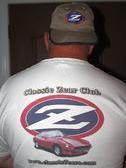IGNORED
Ok, here is the poll!
Does using "FACTORY" interchanged parts in a restoration hurt its authenticity?
83 members have voted
-
Recently Browsing 0 members
- No registered users viewing this page.
-
Who's Online 1 Member, 0 Anonymous, 96 Guests (See full list)


Recommended Posts
Create an account or sign in to comment
You need to be a member in order to leave a comment
Create an account
Sign up for a new account in our community. It's easy!
Register a new accountSign in
Already have an account? Sign in here.
Sign In Now